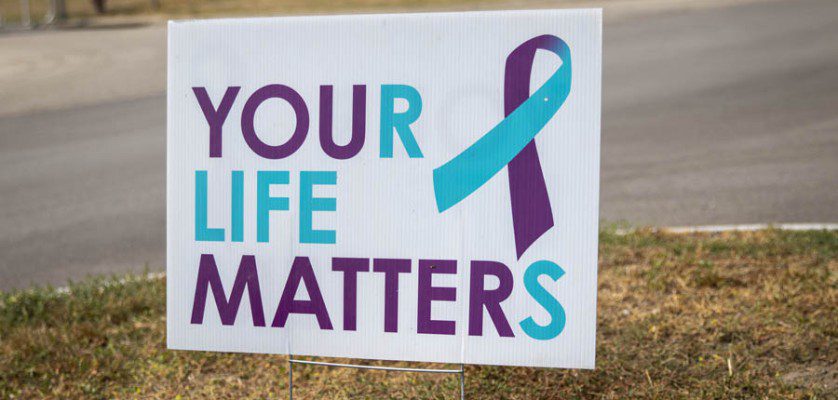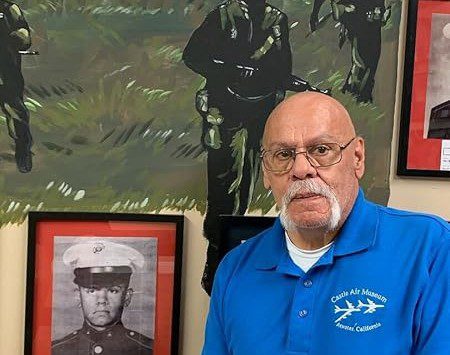Editor’s Note: This Op-Ed column follows the recent death by suicide of Edwards Air Force Base spokesman Danny Bazzell, who was an Army veteran of the Cold War.
by Dennis Anderson
Special to Aerotech News
When we lose friends to suicide there is often that nagging question: “Why would he – or she – do such a thing?” Followed by another equally unsatisfying query: “Didn’t our friend realize how many people loved him (or her)?”
Usually, the answers in whatever form they take are unsatisfying. It often translates to “How could he (or she) have done this if they knew how much pain they would cause?”
Writing with 10 years in the field as a mental health professional, every incidence of a friend or relative’s suicide is different. But it rarely has much to do with whether that person was loved, or liked, by many, or their intimate partners.
In the moment of the self-destructive act, the suffering person lacks capacity to grasp that they are loved, supported or cherished. The person is at the edge of an abyss because they are experiencing incomprehensible inner torment and simply wish to escape the painful demon’s seductive, siren song.
Many of us in the Antelope Valley who both liked and loved our friend Danny Bazzell, the spokesman at Edwards Air Force Base, are shocked, and mystified. Many accepted our friend’s cheerful demeanor, and kind and friendly nature.
People who knew Danny a bit better listened to him describe a depression that stalked him most of his life. When it comes down to it, he did the best he could. He sought and obtained therapy. He helped others with mental health struggles by encouraging them to seek help. He brought me to the base to discuss suicide prevention.
Suicide is a leading cause of premature death in America, exceeding the number of car accidents in recent years. Women are more likely to attempt death by suicide, and men are more likely to complete the act. Women are more likely to use drugs, and men favor firearms.
It is myth that people who talk about it do not follow through. Yes, they do. And some who never disclose their thinking, they also leave life through suicide.
Professionals share there is no certainty in prediction. People considering suicide sometimes reveal a plan, and sometimes conceal their thinking or planning, and some just go in the moment of dreadful impulse. The best question is the most direct: “Are you thinking about killing yourself?” Or, “Are you thinking of suicide?”
The myth is that will plant the idea. The reality is that the direct question provides relief because the subject is out in the open.
Paradoxically, some become cheerful, and this is deceptive because the mood elevation flows from arriving at a decision. Be wary if friends are giving away cherished items or good stuff, or when they share they are planning to be away.
Men are more likely to use firearms, and military veterans more likely to have ready access and knowledge. In veterans’ psych practice, trigger locks on guns are a life-preserving tool. Even when someone is planning to kill themselves, anything that slows down the impulsive act is a protective factor.
A gunshot suicide leaves such a shocking and ugly aftermath that people often respond with revulsion and a judgmental, angry response. This is understandable, but it is worth considering the suffering individual lacked the capacity to consider the aftermath, the inevitable mess the living must deal with.
When we are the decent, caring people we aspire to be, we understand the importance of supporting surviving family and friends. One way is to set judgment aside, and just be kind to the bereaved.
Another idea is to set aside that game of “telephone,” the news that is transmitted and ultimately devolves into gossip. It’s understandable. Each of us fear death in our own ways, and talking about it may help reduce that fear, but it does not help the survivors.
A way to regard the person who felt no way out might be to shift to compassion rather than anger, anger usually being handmaiden to fear. Compassion for survivors, and compassion for the person who, in the moment, saw no other way to escape the miseries they lacked capacity to manage in this life.
In the case of our public man, Danny, no one can truly grasp the burdens he experienced or judge him on the race against death he lost earlier this week.
Many who suffer experience shame and guilt that would mystify others who believe they know their friends. Pity, dread, and anger in response to a suicide may feel natural, but compassion and kindness are the currencies that may ultimately offer comfort to survivors.
Many years ago when I faced a life-threatening struggle, a wise friend advised me that depression is a deceptive illness that fools the suffering person into believing circumstances are much worse than they are in reality. That illusion of delusional thinking can lead to destruction of the self.
In her book, “Everyday Zen,” author Charlotte Joko Beck wrote of a friend who killed himself after years of talking about it and concluded, “It was not a surprise, but it is very sad because a human life is such a rare thing to have.”
Among the many resources, someone considering suicide, or friend or relative of such person, can call 911. Anyone in suicidal crisis can call 988, the National Suicide Hotline.
Dennis Anderson is a licensed clinical therapist at High Desert Medical Group. An Army veteran, he served on the Los Angeles County Veterans Advisory Commission and works on veteran issues and community health initiatives.











